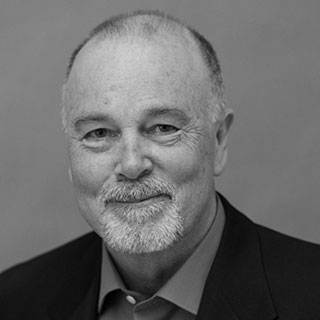John B. MacDonald /
Tuesday, September 24, 2024
What is this heresy?
Are you aware of it?
What can you do about it?
A notable heresy
A. W. Tozer writes in I Call It Heresy:
“… a notable heresy has come into being throughout our evangelical Christian circles – the widely-accepted concept that we humans can choose to accept Christ only because we need Him as Saviour and that we have the right to postpone our obedience to Him as Lord as long as we want to!”
After more than 50 years of Christ-life, I continue to be amazed at the prevalence of this thinking among those who profess to be Christians. For instance, people can say a “sinner’s prayer” and continue living their lives without any change. Nothing in their lives manifests any relationship with Jesus Christ.
This is one of the reasons I seldom use the term “Christian.” Although it is a biblical term, it has lost much of its meaning in our culture. Instead, I use the term “follower of Jesus” because it describes an activity of the soul that expresses itself in life.
Vampire Christians
Dallas Willard comments on this “heresy” in The Great Omission:
“This ‘heresy’ has created the impression that it is quite reasonable to be a ‘vampire Christian.’ One in effect says to Jesus, ‘I’d like a little of your blood, please. But I don’t care to be your student or have your character. In fact, won’t you just excuse me while I get on with my life, and I’ll see you in heaven.’ But can we really imagine that this is an approach that Jesus finds acceptable?”
We might be uncomfortable with Willard’s graphic description— “vampire Christian”—but is he wrong?
Cheap grace
In The Cost of Discipleship, Dietrich Bonhoeffer identifies this heresy as “cheap grace.” This “amounts to the justification of sin without the justification of the repentant sinner who departs from sin and from whom sin departs.”
He continues:
“Cheap grace is the preaching of forgiveness without requiring repentance, baptism without church discipline, communion without confession, absolution without personal confession. Cheap grace is grace without discipleship, grace without the cross, grace without Jesus Christ, living and incarnate.”
“Heresy,” “vampire Christian,” “cheap grace”—three ways of describing a condition that presumes one is Christian but is not.
Where do you stand?

What God desires
God’s great purpose and goal for each of us is that we be transformed into the image of his Son, Jesus Christ (see Romans 8:28-29; 1 John 3:2-3; 2 Corinthians 3:18, and their contexts). The process of this transformation is discipleship.
Jesus commissioned the eleven—and by extension, every Christian—with these words (Matthew 28:18-20):
“All authority in heaven and earth has been given to me. Therefore go and make disciples of all nations, baptizing them in the name of the Father and of the Son and of the Holy Spirit, and teaching them to obey everything I have commanded you. And surely I am with you always, to the very end of the age.”
In the past week, I have had the privilege of teaching three groups of enthusiastic followers of Jesus. Jesus Christ and His Great Commission have been central to our discussions and prayers.
How do we go about fulfilling and living this command of our Lord?
Moving forward
Willard, in The Great Omission, further observes:
“… I know of no current denomination or local congregation that has a concrete plan and practice for teaching people to do ‘all things whatsoever I have commanded you.’ Very few even regard this as something we should actually try to do, and many think it to be simply impossible.”
Here’s my proposal.
Matthew, in his Gospel account, has provided us with a paradigm for making disciples. We must reclaim that paradigm and live it as communities of God’s people.
In future posts, we will examine how we can be transformed into the image of Jesus Christ. Some of these posts may be about reading Matthew’s Gospel more “thickly,” discerning what it means in our time and place, and living it out in God-honoring ways.
In the meantime, begin reading Matthew. Pray for your heart, mind, and life to be opened to what you hear and how you can be transformed to become more and more like Jesus Christ.

Dr. John B. MacDonald has served for decades as a lawyer and pastor-teacher. He is an associate with Outreach Canada and focuses on equipping and encouraging others to become more like Jesus Christ and to live all of life with God-honoring competence and joy. You can also find more articles from John on his website, living theology.
SUBSCRIBE

Return